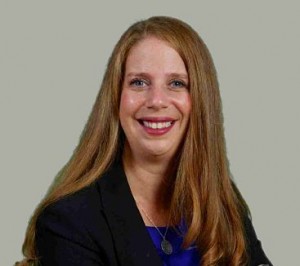
By Lisa Taylor, Challenge Factory
Special to the Financial Independence Hub
Recently, Malcolm Hamilton’s C.D. Howe Institute paper, Do Canadians Save Too Little?, challenged the prevailing view that Canadians are not financially prepared for retirement. His Financial Post column summarized the key findings of his paper and highlighted that many of the assumptions made about retirement are not accurate. Canadians are saving and the determination of how much saving is enough is dependent on many non-financial factors. [See also the Hub’s blog on this: JC]
Indeed, the question of “retirement readiness” is more complicated than calculations predicting financial security.
Meaning of “Retirement” has changed
Retirement has changed. Every formal definition of the verb “to retire” focuses on retreat, withdrawal and conclusion. The original meaning of the word included a complete withdrawal from work, a focus on rest or seclusion, a retreat from battle or the time to go to bed. We retire equipment when it is taken out of service. We retire a bond by taking it out of circulation.
It used to be that when people “retired” all of these words applied. They were stepping back or stepping out of the workforce.
Today, these terms do not reflect our common understanding of retirement. Indeed, the 2015 Sun Life Unretirement Index reported that Canadians are retiring younger than ever before and working longer. People are both “retired” and working, in all different capacities.
After spending what used to be a lifetime at work, often within the same industry or company, it can be daunting to think about what one will do next. After all, we use our occupation, title and company name as part of every introduction. Work details are ingrained parts of our core identity. Who are we if we no longer hold the title or work at the company we’ve always identified with? How can we prepare to live these next decades looking forward and thriving, rather than always having to use the past tense to define who we are: “Hi, I’m Susan. I used to work at….”
Findependence moves us one step forward
Today, retirement planning focuses almost exclusively on financial readiness. Findependence moves us one step forward by incorporating the concept that you are not preparing to withdraw at a specific age but, rather, are able to make choices at any age once you have achieved financial security.
What’s missing in the discussion is the bold, forward-facing call to action to use these years as a time where you build and live your legacy, instead of in retreat.
Encore or Legacy Careers
At Challenge Factory, our community is doing just that. They are adopting updated views of what it means to be a vibrant, active and contributing 50, 60, 70 and 80 year old. They are starting businesses, changing careers, joining boards, volunteering and finding new work that meets their criteria. They are considering who they are outside of the way their work has had them defined and realizing that they have much still to offer. They are aligning their own needs with market needs and learning how to leverage their significant talents to overcome the ageism and barriers that exist.
The world of work is changing and so is the meaning of retirement. Are you preparing to exit and withdraw or are you ready for the next phase that includes meaningful ways to contribute, thrive and grow? The most significant issue to be addressed is what people will do with the two to three decades ahead. Only then can you truly be “ready.”
Challenge Factory is a North American thought leader on topics related to demographics, longevity and the changing workforce. Challenge Factory programs transform outdated career, talent and succession management models inside of organizations, support managers to become better career advisors and guide individuals to find Legacy Careers®. Lisa is a sought after keynote speaker, writer and strategist.
Download the free full report that summarizes our findings and challenges forward thinking CEOs to capitalize on the most significant workforce opportunity of the decade.


The “retirement” world is changing and financial advisors need to adapt to the new reality. I wonder how many teach their clients the concept of ‘findependence” and help them set a plan to achieve it. Instead of just focusing on the ‘investment’ piece they should assist in planning for what happens after findependence, planning for an encore career and help with the transition etc.
Thanks for commenting, Michael. The work of career professionals and the work of financial planners are aligning as clients seek new career portfolios of meaningful activities and ways to contribute, supported by solid financial portfolios. Financial planners assist with valuing the risk and return on your money over time. Career professionals assist in valuing the risk and return on how you spend you time over time.